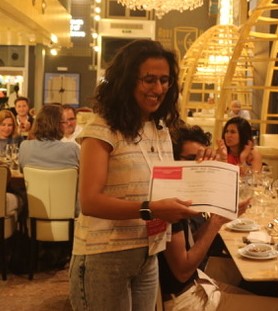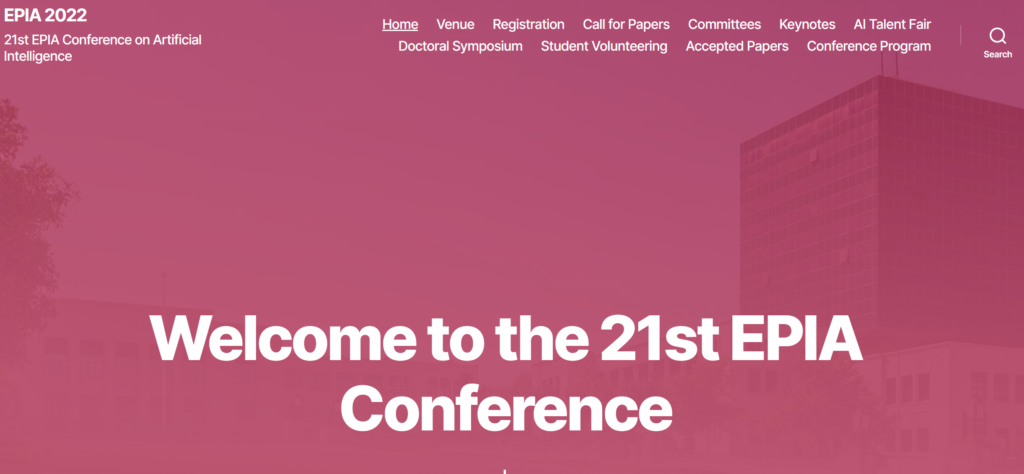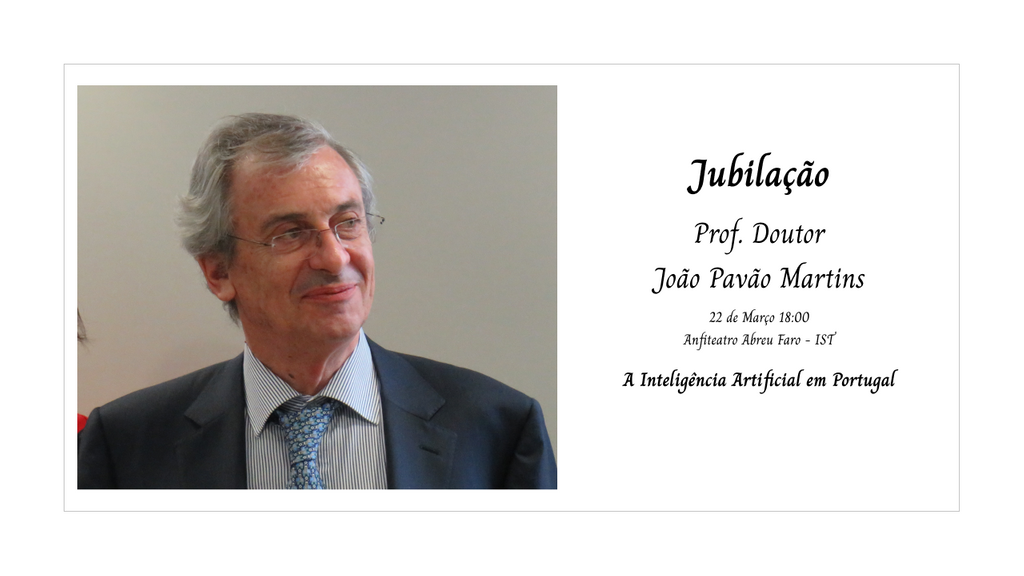******************************************************************
5th INTERNATIONAL SCHOOL ON DEEP LEARNING
DeepLearn 2022 Spring
Guimarães, Portugal
April 18-22, 2022
https://irdta.eu/deeplearn/2022sp/
******************************************************************
Co-organized by:
Algoritmi Center
University of Minho, Guimarães
Institute for Research Development, Training and Advice – IRDTA
Brussels/London
******************************************************************
Early registration: March 16, 2022
******************************************************************
SCOPE:
DeepLearn 2022 Spring will be a research training event with a global scope aiming at updating participants on the most recent advances in the critical and fast developing area of deep learning. Previous events were held in Bilbao, Genova, Warsaw, Las Palmas de Gran Canaria, and Bournemouth.
Deep learning is a branch of artificial intelligence covering a spectrum of current frontier research and industrial innovation that provides more efficient algorithms to deal with large-scale data in a huge variety of environments: computer vision, neurosciences, speech recognition, language processing, human-computer interaction, drug discovery, biomedical informatics, image analysis, recommender systems, advertising, fraud detection, robotics, games, finance, biotechnology, physics experiments, etc. etc. Renowned academics and industry pioneers will lecture and share their views with the audience.
Most deep learning subareas will be displayed, and main challenges identified through 24 four-hour and a half courses and 3 keynote lectures, which will tackle the most active and promising topics. The organizers are convinced that outstanding speakers will attract the brightest and most motivated students. Face to face interaction and networking will be main ingredients of the event. It will be also possible to fully participate in vivo remotely.
An open session will give participants the opportunity to present their own work in progress in 5 minutes. Moreover, there will be two special sessions with industrial and recruitment profiles.
ADDRESSED TO:
Graduate students, postgraduate students and industry practitioners will be typical profiles of participants.
However, there are no formal pre-requisites for attendance in terms of academic degrees, so people less or more advanced in their career will be welcome as well. Since there will be a variety of levels, specific knowledge background may be assumed for some of the courses.
Overall, DeepLearn 2022 Spring is addressed to students, researchers and practitioners who want to keep themselves updated about recent developments and future trends. All will surely find it fruitful to listen to and discuss with major researchers, industry leaders and innovators.
VENUE:
DeepLearn 2022 Spring will take place in Guimarães, in the north of Portugal, listed as UNESCO World Heritage Site and often referred to as the birthplace of the country. The venue will be:
Hotel de Guimarães
Eduardo Manuel de Almeida 202
4810-440 Guimarães
http://www.hotel-guimaraes.com/
STRUCTURE:
3 courses will run in parallel during the whole event. Participants will be able to freely choose the courses they wish to attend as well as to move from one to another.
Full in vivo online participation will be possible. However, the organizers highlight the importance of face to face interaction and networking in this kind of research training event.
KEYNOTE SPEAKERS:
Kate Smith-Miles (University of Melbourne), Stress-testing Algorithms via Instance Space Analysis
Mihai Surdeanu (University of Arizona), Explainable Deep Learning for Natural Language Processing
Zhongming Zhao (University of Texas, Houston), Deep Learning Approaches for Predicting Virus-Host Interactions and Drug Response
PROFESSORS AND COURSES:
Eneko Agirre (University of the Basque Country), [introductory/intermediate] Natural Language Processing in the Pretrained Language Model Era
Mohammed Bennamoun (University of Western Australia), [intermediate/advanced] Deep Learning for 3D Vision
Altan Çakır (Istanbul Technical University), [introductory] Introduction to Deep Learning with Apache Spark
Rylan Conway (Amazon), [introductory/intermediate] Deep Learning for Digital Assistants
Jifeng Dai (SenseTime Research), [intermediate] AutoML for Generic Computer Vision Tasks
Jianfeng Gao (Microsoft Research), [introductory/intermediate] An Introduction to Conversational Information Retrieval
Daniel George (JPMorgan Chase), [introductory] An Introductory Course on Machine Learning and Deep Learning with Mathematica/Wolfram Language
Bohyung Han (Seoul National University), [introductory/intermediate] Robust Deep Learning
Lina J. Karam (Lebanese American University), [introductory/intermediate] Deep Learning for Quality Robust Visual Recognition
Xiaoming Liu (Michigan State University), [intermediate] Deep Learning for Trustworthy Biometrics
Jennifer Ngadiuba (Fermi National Accelerator Laboratory), [intermediate] Ultra Low-latency and Low-area Machine Learning Inference at the Edge
Lucila Ohno-Machado (University of California, San Diego), [introductory] Use of Predictive Models in Medicine and Biomedical Research
Bhiksha Raj (Carnegie Mellon University), [introductory] Quantum Computing and Neural Networks
Bart ter Haar Romenij (Eindhoven University of Technology), [intermediate] Deep Learning and Perceptual Grouping
Kaushik Roy (Purdue University), [intermediate] Re-engineering Computing with Neuro-inspired Learning: Algorithms, Architecture, and Devices
Walid Saad (Virginia Polytechnic Institute and State University), [intermediate/advanced] Machine Learning for Wireless Communications: Challenges and Opportunities
Yvan Saeys (Ghent University), [introductory/intermediate] Interpreting Machine Learning Models
Martin Schultz (Jülich Research Centre), [intermediate] Deep Learning for Air Quality, Weather and Climate
Richa Singh (Indian Institute of Technology, Jodhpur), [introductory/intermediate] Trusted AI
Sofia Vallecorsa (European Organization for Nuclear Research), [introductory/intermediate] Deep Generative Models for Science: Example Applications in Experimental Physics
Michalis Vazirgiannis (École Polytechnique), [intermediate/advanced] Machine Learning with Graphs and Applications
Guowei Wei (Michigan State University), [introductory/advanced] Integrating AI and Advanced Mathematics with Experimental Data for Forecasting Emerging SARS-CoV-2 Variants
Xiaowei Xu (University of Arkansas, Little Rock), [intermediate/advanced] Deep Learning for NLP and Causal Inference
Guoying Zhao (University of Oulu), [introductory/intermediate] Vision-based Emotion AI
OPEN SESSION:
An open session will collect 5-minute voluntary presentations of work in progress by participants. They should submit a half-page abstract containing the title, authors, and summary of the research to david@irdta.eu by April 10, 2022.
INDUSTRIAL SESSION:
A session will be devoted to 10-minute demonstrations of practical applications of deep learning in the industry. Companies interested in contributing are welcome to submit a 1-page abstract containing the program of the demonstration and the logistics needed. People in charge of the demonstration must register for the event. Expressions of interest have to be submitted to david@irdta.eu by April 10, 2022.
EMPLOYER SESSION:
Firms searching for personnel well skilled in deep learning will have a space reserved for one-to-one contacts. It is recommended to produce a 1-page .pdf leaflet with a brief description of the company and the profiles looked for to be circulated among the participants prior to the event. People in charge of the search must register for the event. Expressions of interest have to be submitted to david@irdta.eu by April 10, 2022.
ORGANIZING COMMITTEE:
Dalila Durães (Braga, co-chair)
José Machado (Braga, co-chair)
Carlos Martín-Vide (Tarragona, program chair)
Sara Morales (Brussels)
Paulo Novais (Braga, co-chair)
David Silva (London, co-chair)
REGISTRATION:
It has to be done at
https://irdta.eu/deeplearn/2022sp/registration/
The selection of 8 courses requested in the registration template is only tentative and non-binding. For the sake of organization, it will be helpful to have an estimation of the respective demand for each course. During the event, participants will be free to attend the courses they wish.
Since the capacity of the venue is limited, registration requests will be processed on a first come first served basis. The registration period will be closed and the online registration tool disabled when the capacity of the venue will get exhausted. It is highly recommended to register prior to the event.
FEES:
Fees comprise access to all courses and lunches. There are several early registration deadlines. Fees depend on the registration deadline.
ACCOMMODATION:
Accommodation suggestions are available at
https://irdta.eu/deeplearn/2022sp/accommodation/
CERTIFICATE:
A certificate of successful participation in the event will be delivered indicating the number of hours of lectures.
QUESTIONS AND FURTHER INFORMATION:
david@irdta.eu
ACKNOWLEDGMENTS:
Centro Algoritmi, University of Minho, Guimarães
School of Engineering, University of Minho
LASI – Intelligent Systems Associate Laboratory
Rovira i Virgili University
—
Dalila Durães
“So the task is, not so much to see what no one has seen yet, but to think what nobody has yet thought, about what everybody sees.”
Arthur Schopenhauer (1851)




